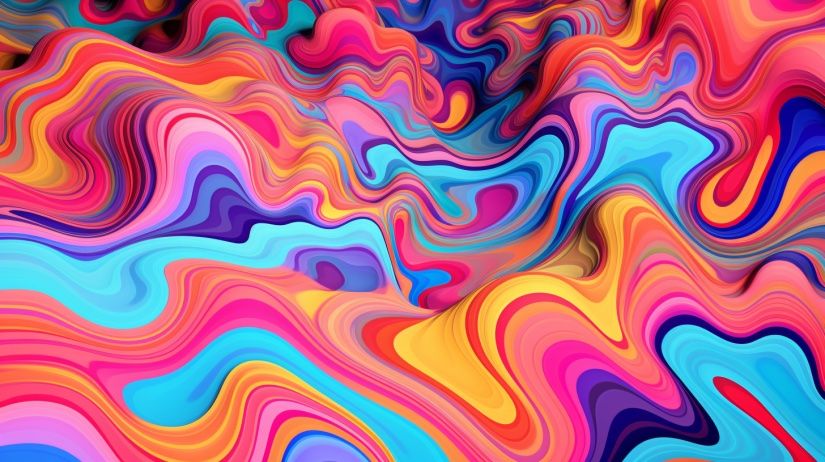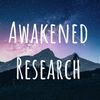Breakthrough Psilocybin Research: Promising Results in Major Depression Treatment

Psilocybin, the psychedelic compound found in magic mushrooms, has shown promising results in the treatment of major depression, according to a small study conducted by researchers at Johns Hopkins Medicine. The study involved administering two doses of psilocybin, along with supportive psychotherapy, to adults with major depression. The results were remarkable, with participants experiencing rapid and significant reductions in depressive symptoms. In fact, half of the study participants achieved remission from depression during the four-week follow-up period.
Details on the Study
The study, published in JAMA Psychiatry, builds upon previous research by the same team, which demonstrated the effectiveness of psilocybin in alleviating existential anxiety and depression in individuals with a life-threatening cancer diagnosis. The new findings suggest that psilocybin may have a much broader application in the treatment of major depression than previously thought.
Alan Davis, Ph.D., adjunct assistant professor of psychiatry and behavioral sciences at the Johns Hopkins University School of Medicine, emphasized the magnitude of the effect observed in the study, stating that it was about four times larger than what traditional antidepressants have shown in clinical trials. This suggests that psilocybin could potentially be a game changer for depression treatment, especially considering the slow onset and potential side effects of current antidepressant medications.
Study Participants
The study involved 24 participants with a long-term history of depression, most of whom had been experiencing symptoms for approximately two years. The average age of the participants was 39, and the majority were women. Participants had to discontinue their antidepressant medications before the study to ensure safe exposure to psilocybin.
Thirteen participants received immediate psilocybin treatment, while the remaining 11 participants received the treatment after an eight-week delay. Each participant underwent two five-hour psilocybin sessions, guided by clinical monitors who provided support and reassurance. The treatment sessions took place at the Johns Hopkins Bayview Medical Center Behavioral Biology Research Building, with participants lying on a couch, wearing eyeshades, and listening to music through headphones.
The severity of participants' depressive symptoms was assessed using the GRID-Hamilton Depression Rating Scale at the beginning of the study and at one and four weeks after completing the treatment. The results were impressive, with participants experiencing a significant decrease in depressive symptoms. At the four-week follow-up, 54% of participants were considered to be in remission from depression.
Discussion
Roland Griffiths, Ph.D., the Oliver Lee McCabe III Professor in the Neuropsychopharmacology of Consciousness at the Johns Hopkins University School of Medicine and director of the Johns Hopkins Center for Psychedelic and Consciousness Research, noted that the positive response to psilocybin treatment was surprising, considering the various types of major depressive disorders and their potential variations in treatment response. The researchers were encouraged to explore the effects of psilocybin in a wider population due to its potential public health impact.
The researchers plan to continue following the participants for a year after the study to assess the long-term effects of the psilocybin treatment. These findings could have significant implications for the approval and use of psilocybin as a medical treatment for depression.
The study has attracted the attention of entrepreneur and philanthropist Tim Ferriss, who has personally struggled with depression and believes this research is a crucial step towards the medical approval of psilocybin for depression treatment. Ferriss supported the funding campaign for the study and expressed excitement about the potential of psychedelics to revolutionize our understanding and treatment of mood and mental health disorders.
The Johns Hopkins researchers, including Griffiths, have been at the forefront of psilocybin research since the early 2000s. Initially met with skepticism and concern, their work has gained support over time, with numerous startups and research labs now pursuing their own studies on psychedelics. Several companies are activelyworking towards the development of marketable forms of psilocybin and other related psychedelic substances. This surge of interest and investment in psychedelic research reflects the growing recognition of the potential therapeutic benefits that these substances may offer.
The success of the recent study on psilocybin and major depression further solidifies the case for continued exploration and expansion of psychedelic research. While the study was small in scale, its results were highly promising and have paved the way for larger, placebo-controlled clinical trials that will provide more robust evidence of psilocybin's efficacy.
The researchers at Johns Hopkins are not alone in their efforts. Institutions and organizations around the world are joining forces to unravel the therapeutic potential of psychedelics. The Multidisciplinary Association for Psychedelic Studies (MAPS), for example, is conducting research on MDMA-assisted therapy for post-traumatic stress disorder (PTSD), while the Imperial College London is investigating the use of psilocybin for various mental health conditions.
Future Research
The positive outcomes seen in psilocybin research extend beyond major depression. Studies have shown promising results in the treatment of other mental health disorders, such as anxiety, addiction, and end-of-life distress. The potential applications of these substances are far-reaching, offering hope for individuals who have been failed by conventional treatment approaches.
However, it is essential to approach this field of research with caution and adhere to rigorous scientific protocols. Safety measures must be in place to minimize potential risks and ensure that patients receive appropriate support and guidance throughout the treatment process. Responsible and ethical practices are crucial to ensure the well-being of individuals participating in these studies.
The renaissance of psychedelic research also highlights the need for a shift in societal attitudes towards these substances. Historically stigmatized and classified as illegal drugs, psychedelics are now being recognized for their therapeutic potential. Public perception and policy frameworks are gradually evolving to accommodate the growing body of scientific evidence supporting their use in a controlled and therapeutic context.
As the field progresses, it is crucial to strike a balance between scientific rigor and accessibility. Regulatory frameworks need to be established to facilitate safe and responsible use of psychedelics in clinical settings, while also ensuring that those who could benefit from these treatments have access to them. The goal should be to create a framework that allows for both rigorous scientific research and responsible medical practice.
The path ahead for psilocybin and other psychedelic substances is still filled with challenges, including regulatory hurdles and further scientific investigation. However, the recent study on psilocybin and major depression brings us one step closer to realizing the therapeutic potential of these substances. It ignites hope for individuals who have been grappling with treatment-resistant depression and inspires researchers to delve deeper into the possibilities that psychedelics offer.
As more studies are conducted and the body of evidence grows, it is our collective responsibility to support and advocate for further research into the therapeutic potential of psilocybin and other psychedelics. The findings from these studies have the potential to transform the landscape of mental health treatment and offer new avenues of hope and healing for those who are suffering. The journey is ongoing, but the progress made thus far is undeniably remarkable.
References
Psychedelic Treatment with Psilocybin Relieves Major Depression, Study Shows (Johns Hopkins Medicine)
